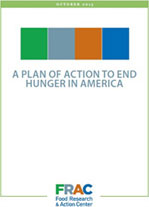Local Advocates Bring a “Burst of Food Advocacy Energy” to Maryland
To address food insecurity and poverty in Maryland, more than 150 Marylanders came together for the eighth annual Maryland Food Access and Nutrition Network (MFANN) Fighting Hunger in Maryland conference in Annapolis on October 9. As the only statewide anti-hunger conference, MFANN Fighting Hunger in Maryland connects leaders from state and local agencies, nonprofits, schools, and advocacy organizations to inform, engage, and inspire action to reduce hunger and promote equity in food access and nutrition in Maryland.







